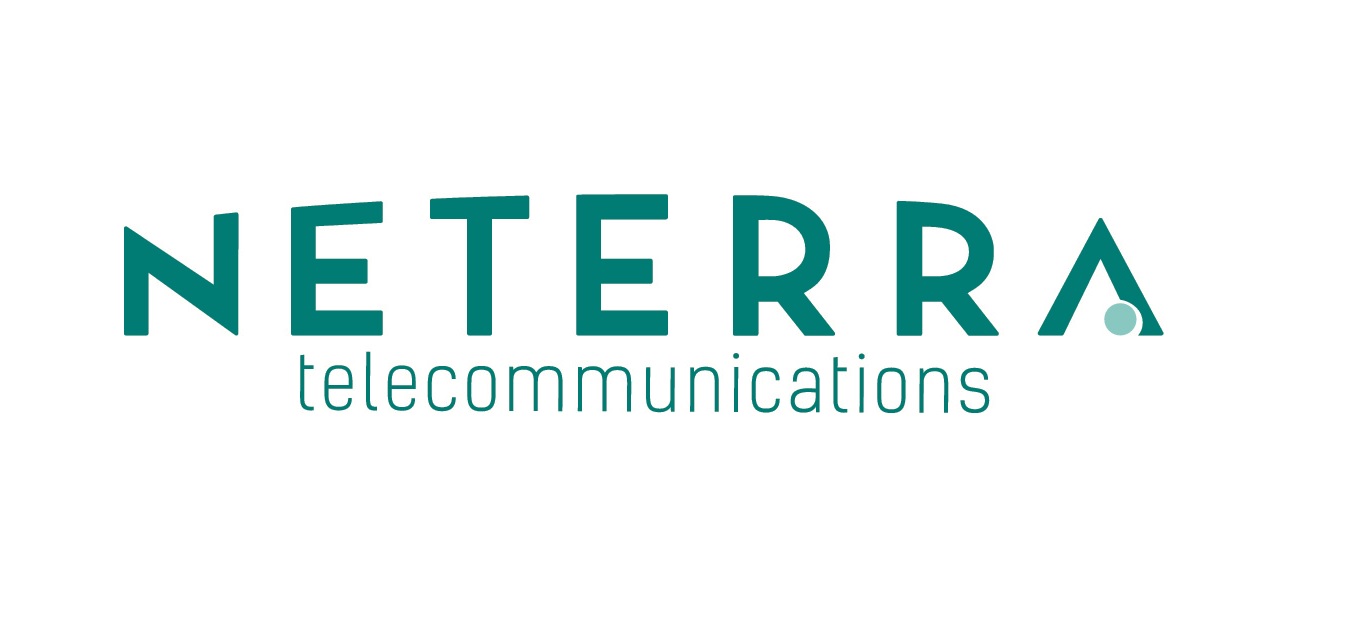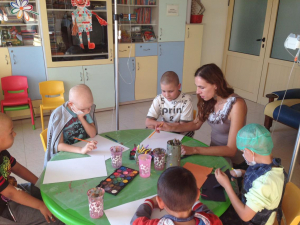
ARTON PROGRAM - The therapeutic power of the group
Creative projects involving group work - general musical performance or group painting, collage, sculpture - are useful in helping to explore and strengthen social...

When a child is struggling, or his behavior worries you, it can be hard to know whether you need to reach out to a professional. And if you do seek help, what kind of professional, and what kind of treatment, are right for your child? In this guide we take you through the steps to finding the best professional (or team) for your child, and the most appropriate treatment for the disorder or disability. Along the way, we offer things to look for and questions to ask to ensure that you're getting quality care your child deserves.
We all worry about our kids. Sometimes our worries are about whether they are developing in a healthy way. (Should he be talking by now?) Or about whether they are happy—we don’t like to see them sad or suffering. And sometimes we worry because a child’s behavior is causing problems for him—or for the whole family.
One of the challenges of parenting is knowing when a worry should prompt action. How do you know when to get help for a child who is struggling? Keep in mind that there is a lot of variation in how kids develop, and a broad range of behavior that’s typical and healthy (if sometimes troublesome) as children grow up. So you don’t want to overreact. But when the behaviors you worry about are seriously interfering with your child’s ability to do things that are age-appropriate, or your family’s ability to be comfortable and nurturing, it’s important to get help.
Here are some things mental health practitioners recommend you consider in deciding whether a child needs professional help.
If you’ve determined that your child’s behaviors, thoughts, or emotions might call for attention, your next move is to consult a professional. But where should you go? A potentially bewildering range of mental health providers are out there, and not all of them are the best people to go to for an evidence-based assessment and sound diagnosis. Where to start depends on the makeup of your child’s current healthcare team and the services available in your area.
Not all of the specialists below will deliver a diagnosis, but many of them (pediatrician, school psychologist) can be valuable in the process of getting an accurate diagnosis that will help your child. (See our Guide to Mental Health Specialists for information about the types of specialists who treat children, their training and the kind of services they provide.)
For most parents, consulting your family doctor is the first step. While medical doctors are not required to have substantial training in mental health, many do diagnose and treat psychiatric disorders, and others may be able to refer you to a specialist who can.
The advantage to going to the pediatrician is that she already knows your child and your family, and she sees so many children, she can be adept at recognizing when behavior is beyond the typical range. She can also do medical testing to rule out possible non-psychiatric causes of troubling symptoms.
The disadvantage is that your pediatrician may have limited experience in diagnosing psychiatric and developmental disorders and most don’t have time to do the kind of careful assessment that is important for an accurate diagnosis, given that many common problem behaviors in children—i.e. inattention, tantrums, disruptive behavior—can be caused by several different psychiatric or developmental disorders.
Best practices in diagnosing children include using rating scales to get an objective take on symptoms, and collecting information from multiple sources, including the child, the parents, caregivers, teachers, and other adults. (Effective diagnosis of very young children requires extra measures, discussed here.)
You should be upfront with your doctor and ask if she is comfortable and knowledgeable concerning mental illness. Ask for a referral or seek out another clinician if you are not comfortable with what your doctor offers.
When looking for a mental health specialist to provide a diagnostic evaluation for your child, you’ll want to be prepared with questions that will help you decide if a particular clinician is a good match for your needs:
It is a frustrating fact for far too many families in this country that adequate mental health services are not readily, or even realistically available. This is one reason that so much of the burden of caring for children with psychiatric and learning disorders has fallen to primary care doctors, even if their training isn’t always adequate for a child’s needs, especially in complex cases. Luckily, many state health services have begun to address this problem through telepsychiatry—giving local family doctors access to consultation with trained psychiatrists via telephone or internet.
If you are having trouble finding someone competent to evaluate and perhaps diagnose your child, ask your pediatrician or any mental health provider you are in contact with if they can research getting a consultation from a remote service. If that is not available, it may be well worth the time and effort to go to an appropriate center some distance away to get an excellent evaluation and treatment plan that can be taken back for implementation by clinicians closer to home.
Once you have a diagnosis for your child, it’s time to think about treatment options. In some cases the clinician who did the diagnosis will be a good choice for treatment; in other cases you will need to find a different kind of practitioner. Either way, your primary care practitioner or the diagnosing clinician can be a good place to start the search. Here are some specific examples of the kinds of professionals who may help in treatment for your child:
If you’ve had a neuropsychological evaluation of your child, and his learning challenges have been identified, you will want to find professionals who can help him build on his strengths and compensate for his weaknesses. He may qualify for an IEP (Individualized Education Plan), which spells out the support the school district is obligated to provide.
In addition to whatever help is provided by school-based professionals, you may want to enlist a learning specialist (or educational therapist), who works with a child to build skills and devise strategies for learning in whatever way works best for him. If he needs help with reading or math-related skills, there are specialists who work on those areas. If he is weak in executive functions, the specialist works with him to structure his time and keep track of the schoolwork he needs to do. Sometimes a tutor is useful for a student weak in a particular subject area, and a homework helper can help an unfocused or disorganized student stay on top of his work.
For children with anxiety disorders, such as social anxiety disorder or separation anxiety, the first-line treatment is usually behavior therapy. A psychologist works with both the child and the parents using a treatment protocol that is evidence-tested for his specific disorder. OCD and disorders related to it may be managed in a similar fashion.
If a child is anxious or depressed enough to need medication, usually in addition to the behavior therapy, a psychiatrist or pediatrician prescribes medication and works with the child’s psychologist to monitor his progress. It’s important to make sure that whoever is doing the prescribing has experience with the medication and children similar to yours, and enough time to work with you to manage it successfully.
For children diagnosed with autism spectrum disorder, treatment usually begins as early as possible with applied behavior therapy, to help kids build social and communication skills that they’re not developing naturally. Psychologists with training in behavior therapy (including ABA ) will usually work with children and teach parents how to continue the therapy in between sessions. Children with autism or developmental delays often work with occupational therapists or physical therapists to build motor skills that are lacking.
If your child has been diagnosed with moderate to severe ADHD, the first-line treatment is usually stimulant medication. A psychiatrist or pediatrician can prescribe and monitor the medication. It’s crucial that your doctor has expertise and experience with these medications; getting the right dosage and medication schedule, adjusting the dosage and reevaluating the medication as the child grows and changes are critical to its success. Stimulant medication is fast acting, but there are many kinds, each with different durations and delivery systems, and it may take time to find the medication plan that’s most effective for your child. It’s not unusual for children to change dosage and medications over time, so a close alliance with your clinician is crucial for success.
Treatments that can be effective for psychiatric and learning disorders vary widely, and no two children’s needs are exactly alike. But there are some general standards and questions to ask your doctor to determine whether the care your child is getting follows best practices, whether the treatment involves behavioral therapy, medication, or both.
One reality that can make treating a child with mental illness particularly challenging is that the symptoms she is experiencing may come from multiple disorders. A child who has autism can also have ADHD; a teenager who has social anxiety can also be depressed. When a child has what clinicians call “coexisting” disorders, treating one will not make the other go away. For instance, if a teenager who has ADHD or depression uses alcohol to self-medicate, and develops a substance abuse disorder, treating the original disorder will not cure the substance abuse.
When children have more than one disorder, it’s important to work with a clinician, or a team of clinicians, who can understand how the childhood disorders interact, and come up with a treatment plan that responds to each of them. It’s especially important that any clinician who is prescribing medication be aware of all the coexisting disorders, all the medications that are being prescribed, and how they interact.
What About Problems With Diagnosis or Treatment?
Like all other areas of medicine, some psychiatric and learning disorders are harder to diagnose, and harder to treat, than others. Since there are no blood tests to determine if a child has ADHD or OCD, clinicians depend on measures of behavior. And many behaviors can point to a number of different underlying disorders. If a child is having trouble concentrating in school, for instance, he could have ADHD, but he could also be very anxious. Add to this the fact that some children have multiple disorders—autism and ADHD for instance, or anxiety and depression. All of this contributes to the fact that sometimes the first diagnosis you get is not accurate, and the first treatment is not always effective.
How do you know when it’s time to look for a second opinion, and/or pursue different treatment options?
When should I get a second opinion from another clinician?
What if my child resists the treatment, or the therapist?
Parents are rightfully cautious about getting treatment for children with mental health problems, especially if that treatment involves a psychotropic medication. Alternative treatments such as specialized diets (for example, avoiding sugar or food dye) and natural remedies or supplements can seem like a good solution if you are seeking treatment that feels safe, natural, and DIY.
However, parents exploring these options should be careful because there is very little data showing that most alternative treatments are actually helpful. Anecdotal evidence isn’t the same as scientific testing, and some alternative treatments, like chelation, are even potentially dangerous.
Time spent exploring non-evidence-based care may seem like a good investment, but it comes with an “opportunity cost” to your child. That is, the longer kids miss out on treatment that really affects symptoms the more time they’ll spend impaired, and in many cases missing out on crucial learning and development that goes on during childhood and adolescence. Their disorder may also grow worse without intervention. For many disorders, the longer a child experiences the symptoms, the more challenging it is to treat. For some, particularly autism, some interventions should be undertaken early.
Before trying an alternative treatment, discuss it with your child’s doctor. As with any treatment, ask a lot of questions. Learn how it works, what evidence supports it, when you should start seeing progress, and if there are any dangers associated. If you aren’t satisfied with the results of any treatment, make an appointment to discuss other options with your doctor or with another professional who can give a second opinion.
Supplementing Treatment
While not a treatment by itself, promoting good self-esteem and a healthy lifestyle is important for all kids with psychiatric disorders. Exercise makes us feel good, and it can make a big difference for kids who are feeling badly about themselves or have lots of energy. Things that promote self-awareness and relaxed reflection, like mindfulness meditation and yoga, are also generally beneficial.
If you notice that your child is struggling in school, or doesn’t seem to be picking up basic reading, writing, and math skills the way other kids do, he may have a learning disability. A learning disability is a kind of cognitive disorder that affects basic processes in how we learn, including how we receive, process, recall, and communicate information. The most common one is dyslexia (reading problems), but learning disabilities can also affect how we write, spell, do math, listen, think, and speak. It’s possible for kids to have more than one.
If you suspect your child may have learning difficulties, make a list of everything you have observed about how he learns—his strengths and his weaknesses. Compare notes with his teacher, school psychologist, and anyone else who might be helpful. You may want to ask for what’s called a “pre-referral intervention”—a meeting where teachers and the school psychologist meet with you to discuss different educational supports that might enable your child to learn more effectively. A targeted remediation may be all your child needs. But if the pre-referral intervention doesn’t give you the results you want, a formal diagnostic evaluation is the next step.
How do I get an evaluation for learning issues?
Formal evaluations examine how your child processes information. There are different kinds of evaluations, including educational evaluations (which assess reading, writing, math, and spelling ability) and neuropsychological evaluations (which develop a wide profile of a child’s skills and abilities in reasoning, learning, memory, visual and auditory processing, listening comprehension, verbal expression, executive functioning skills, and academic abilities). Evaluations also establish a baseline for measuring your child’s progress, and they are a necessary step to qualifying for accommodations or special education services.
Schools are legally required to provide an evaluation according to the Individuals with Disabilities Education Act (IDEA). The school might be the first to suggest an evaluation, or you can begin the process yourself by requesting an evaluation in writing. Understood.org has a sample letter you can use. After receiving your written notice, the school will set up a time to discuss an evaluation with you. You should bring your child’s school records, notes from teachers, and your own written observations to the meeting, and come prepared to discuss them. The school staff is required to share with you the kind of evaluation they feel is appropriate, and you have the right to object to the kind of assessment offered, or request a different one. You will ultimately need to sign a consent form before the school is allowed to perform a formal evaluation. After the evaluation the school is required to give you a copy of the results.
If you prefer, you can also get a private evaluation from outside the school, although you will need to pay for it yourself. You can then choose whether or not to share the results with the school.

Creative projects involving group work - general musical performance or group painting, collage, sculpture - are useful in helping to explore and strengthen social...
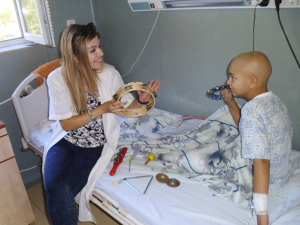
In the ARTON Program our team of oncopsychologists, art therapists and music therapists develops the process of children's creativity as a process of...
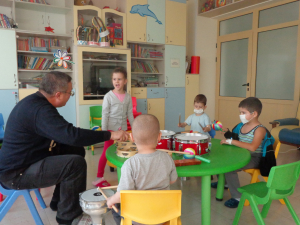
In ARTON sessions, creating a piece of music or a song is an emotional experience of coping and satisfaction for the participating children. They make friends with...
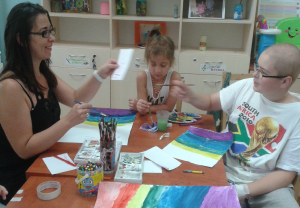
Painting provides patients with a spontaneous, plastic method of depicting thoughts and experiences. Painting with paints is not as structured as with pencil or...







